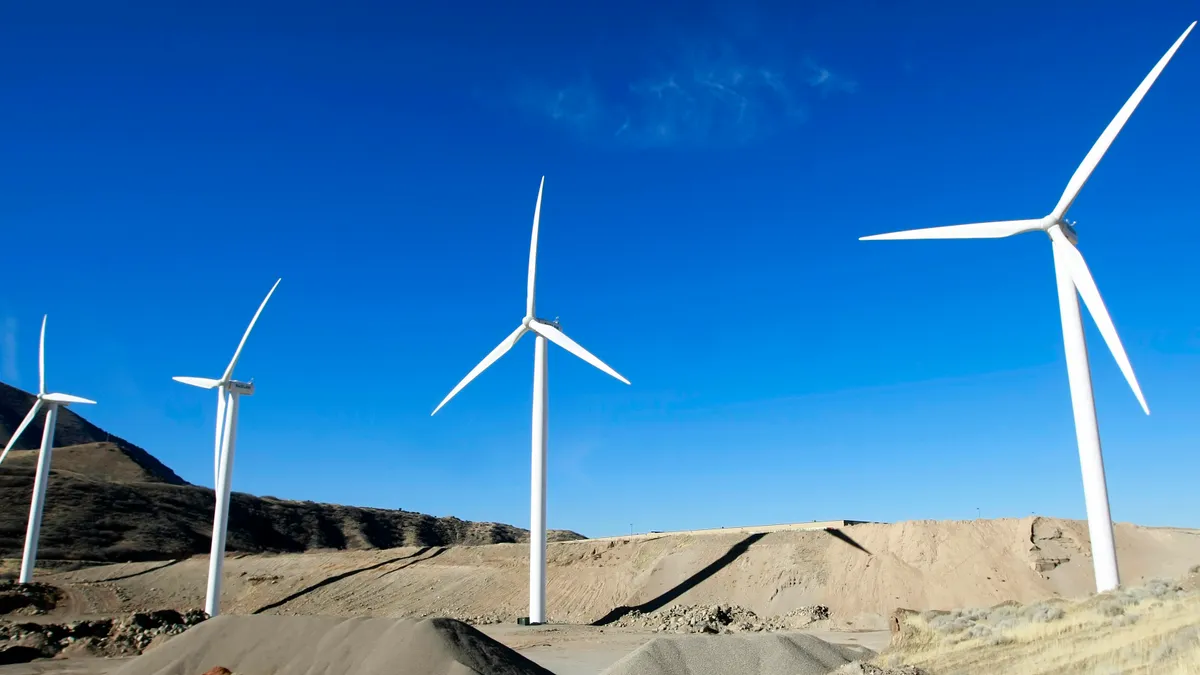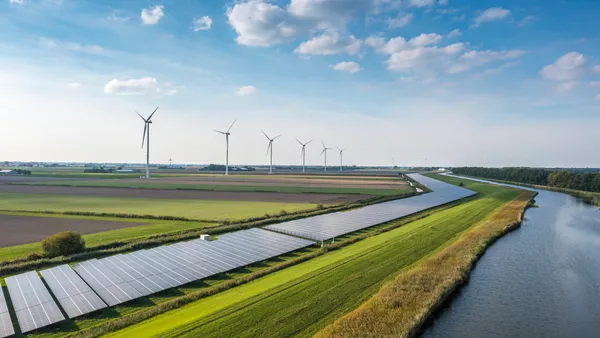The Department of the Interior announced Thursday a proposed update to right-of-way regulations for solar and wind energy projects on public land that it hopes will reduce capacity fees by around 80%, as well as streamline application reviews.
In a release, the department said that its Bureau of Land Management would use authorizations established under the Energy Act of 2020 — which it used in 2022 to reduce fees by around 50% — to codify further reductions in acreage rents and capacity fees.
The proposed rule would also expand the BLM’s authority regarding the leasing of priority areas for wind and solar development, including allowing the bureau to accept leasing applications without going through a full auction, and accept non-competitive applications that are in the public interest.
The proposed rule says that the Federal Land Policy and Management Act “generally requires” right-of-way holders to “pay in advance the fair market value” for use of public lands, but exceptions exist and were expanded by the Energy Act.
When the BLM finds that existing rates are imposing economic hardships or limiting commercial interest in competitive lease sales, or that reductions in fees are necessary to promote the “greatest use” of wind or solar energy, it can bypass the fair market value requirement.
“One component of the capacity fee, the MWh rate, which is based on wholesale prices for the major trading hubs serving 11 western States or on prices received by the ROW holder under a power purchase agreement, would be reduced by 80 percent until 2036 under this rule,” the BLM wrote in the proposed rule, published in the June 16 Federal Register.
The proposed rule says that the capacity fee would be collected in place of the acreage rent if the fee exceeds the rent, and in years where the fee is collected, no rent will be required that year.
“Through the rent and fee adjustments contemplated in this rule, the BLM also expects that lower acreage rental rates and capacity fees for solar and wind energy generating facilities would translate into lower costs for energy deployment, increasing renewable energy market penetration in domestic energy production,” the BLM wrote in the proposed rule.
The bureau said that it hopes to “increase economic certainty” for renewable energy projects on public land by reducing costs for developers and stimulating demand, as well as pass on electricity savings to ratepayers by reducing the cost of production.
The proposed rule will be open for public comment through Aug. 15.















